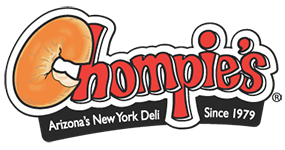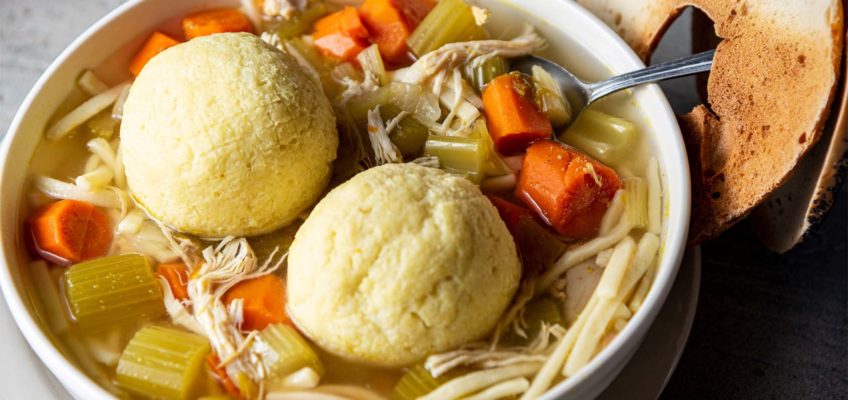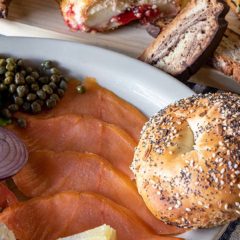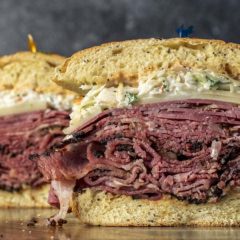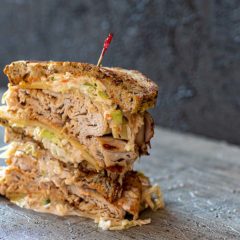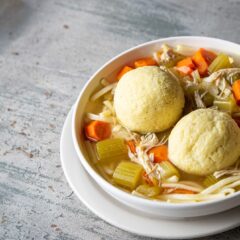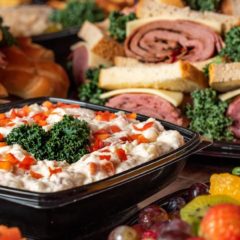While kosher diets have been around for centuries, many people still don’t quite understand what that means. Essentially, it means a person, typically one who follows Judaism, must adhere to dietary laws created under their religion. These laws govern what foods may be eaten and how they must be prepared.
As one of Arizona’s most popular New York-Style delis, we offer an array of kosher favorites. Everything from latkes and matzo ball soup to our Reubens are made with the utmost respect towards Jewish dietary needs. If you’re wondering what exactly these needs are, read our blog post below to find out!
What Exactly Does Kosher Mean?
The term “kosher” is used to describe food that complies with the strict dietary standards of traditional Jewish law. For many people, this diet is more than just about health and food safety. It’s about respect and adherence to long religious traditions.
Kosher is derived from the Hebrew word “kashér”, which means to be pure, proper, or suitable for consumption. The laws that provide the foundation for the dietary requirements are found within the Torah, the Jewish book of sacred texts. These laws are comprehensive and provide a framework that outlines which foods may be consumed and how foods should be produced, processed, and prepared for consumption.
There Are Three Kosher Food Categories: Meat, Dairy, and Pareve
Some of the main dietary guidelines ban certain foods – mainly those in meat and dairy products. In fact, there are even laws on the utensils and equipment being used to process and clean the food. Here are some things to consider about the three food categories:
Meat
For an animal to be kosher, it must have cloven hooves and chew its cud. Manufacturers must process the meat in a specific way to maintain the integrity of kosher-friendly production methods. Some meats that are friendly to this diet include:
- Beef
- Veal
- Goat
- Lamb
- Chicken
- Turkey
- And certain types of game birds
Furthermore, for meat to be kosher, it must undergo a process called shechitah, a method of slaughtering that must be performed by a specialist. After the animal has undergone this process, it will be inspected by a bodek to see if there are any physiological abnormalities that may render the meat to be non-kosher.
Dairy
All dairy products such as milk, cheese, butter, etc. must come from a kosher animal. It’s also key to avoid consuming dairy products during and shortly after eating any meat. The particular length of time varies among different Jewish customs but it is usually between one to six hours.
Pareve
This type of food contains neither milk nor meat, they are considered neutral food. This category includes foods like fruit, veggies, grains, juice, eggs from a kosher animal, and seafood that has both fins and scales. However, it is important to note that you cannot eat any fish while you consume meat. If a pareve food is prepared and processed using any equipment used to process meat or dairy, it may be reclassified as meat, dairy, or simply, non-kosher.
Chompie’s is Serving New York Eats and Kosher Favorites
Since 1979, Chompie’s has been the restaurant of choice for Arizonians looking for a kosher-friendly menu that serves items like latkes, matzo ball soup, knishes, and so much more. Additionally, we’re known for our New York Style menu serving classic deli items like bagels, mile-high sandwiches, salads, and colossal Ruebens. We’re proud of our long history of service and look forward to creating experiences you won’t forget. Visit one of our locations today and see why we’ve become one of Arizona’s favorite delis to date.




